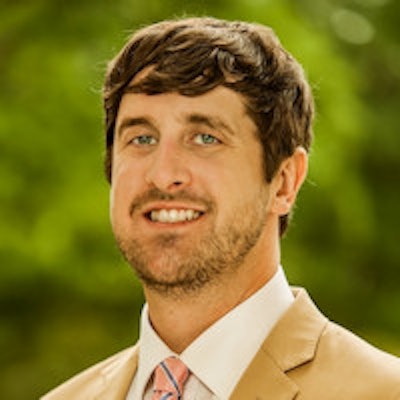
Recently, many of my discussions with private care, fee-for-service dentists and dental school faculty have touched on "corporate dentistry." It is one of the elephants in the room at dental association meetings (along with midlevel providers), yet years of following this industry have made me acutely aware of the fact that most dentists have no idea what they mean by corporate dentistry.
This phenomenon is almost always used as a synonym for dental support organizations (DSOs). These organizations (such as Heartland Dental, Aspen Dental, Great Expressions Dental Centers, and Pacific Dental Services) represent the early stages of dental industry consolidation. Understanding how they operate will provide better insight into the future of the industry. In my first column, I hope to give the reader a brief introduction to DSOs by answering some questions I am frequently asked.
Do I still own my practice if I partner with a DSO?
You do not partner with a DSO. The DSO buys the nonclinical aspects of your practice, including the equipment and goodwill (that is, your reputation and patient base). In most states, the DSO employs all of your hygienists, assistants, and clerical employees.
How can a corporation own a practice?
When a DSO begins operating in a state with the requirement that only dentists can own dental practices, it typically sets up a separate (from the DSO) professional corporation in which a state-licensed dentist is a symbolic sole principal.
 Kevin Cain, PhD, of Georgia Regents University.
Kevin Cain, PhD, of Georgia Regents University.This professional corporation establishes a service agreement with the DSO in perpetuity or for some extended period of time -- typically 40 to 50 years -- where the DSO owns and manages practice operations (with the exception of clinical decisions) and collects all practice revenue (beyond doctors' salaries, which flow through the professional corporation).
Because the professional corporation "pays" clinical (doctor) salaries, it meets the regulatory requirements for doctor-only ownership. When the DSO acquires or opens a new practice in that same state, its clinical aspects are typically rolled into the existing professional corporation and, thus, fall under the service agreement with the DSO.
Some states, such as South Carolina, do not require that a licensed dentist own a dental practice, so the DSOs do not necessarily need to set up a professional corporation to operate in those states. In the case of South Carolina, a change of rules intended to ease the burden of hastily transitioning heirs' ownership interests in dental practices on the death of a principal opened the door for easy entry by DSOs.
Who owns the DSO?
In some cases, particularly with the smaller DSOs, individuals and employee stock plans own the organization. In other cases, particularly with the more prominent DSOs, you have a mix of individuals, employee stock plans, private equity firms, and institutional investors. Just to give you an idea of who owns DSOs, I will identify some major shareholders of a few of the larger companies:
- Heartland Dental has approximately 600 locations and is owned in part by the Ontario Teachers' Pension Plan of Canada.
- Aspen Dental has approximately 350 locations and is owned in part by Leonard Green & Partners, a Los Angeles-based private equity firm.
- Great Expressions has approximately 170 locations and is owned in part by OMERS Private Equity, a subsidiary of the Ontario Municipal Employee Retirement System (OMERS).
Are there publicly-traded DSOs?
At the time of writing, there is one public DSO: Birner Dental Management Services (Nasdaq: BDMS). Birner, the parent company of Perfect Teeth-branded dental offices, is interesting because it is not a member of the Association of Dental Support Organizations (ADSO) like most other DSOs with more than $30 million in revenue.
In 2011, private equity firm JLL Partners purchased American Dental Partners -- a Nasdaq-traded DSO -- for $392 million.
What differentiates DSOs?
The most distinguishing aspects of DSOs are their operational strategies and their focus.
Regarding DSO operational strategies, there are two prevalent models. The first model -- which I will call "stealth" -- is predicated on minimizing the public knowledge that a corporation owns those practices.
“You should not necessarily be scared of DSOs, but you should be prepared to compete with DSO-owned practices.”
When stealth companies acquire the assets of a practice (or group of practices), those acquired locations typically continue doing business as (d/b/a) their original names. When stealth companies open a new practice, they typically use a geographic name (such as a city, neighborhood, or region) for the practice. This strategy is similar to the Dignity Memorial model for corporate funeral homes.
The second model -- which I will call "brand" -- is predicated on the corporation developing brands for dental centers that are easily identifiable. These companies change the name of a practice on acquisition, or use their brand name on new dental offices. This strategy is similar to the LensCrafters model for corporate optometry.
While it's easy to know that you compete against a DSO when an Aspen Dental moves in down the street, many dentists are unaware when a stealth company acquires a practice down the street (such as Goldstein Garber & Salama in Atlanta, which was acquired by Heartland Dental Care).
Regarding focus, some DSOs differentiate by acquiring or opening de novo specialty practices (such as pediatric dentistry or orthodontia).
Should I be worried about corporate dentistry?
You should not necessarily be scared of DSOs, but you should be prepared to compete with DSO-owned practices. Private pharmacies and optometrists are rarer than they were 20 years ago, and they face stiff competition from the corporate offerings of CVS, Walgreens, Rite Aid, Walmart, and others. By Rick Workman's (Heartland) own estimate, "over the next 20 years, the number of dentists practicing at DSO-supported offices will likely double or triple."
If Workman's prophecy comes true, and you are one of the dentists still working in private care in 2035, you will likely be competing against DSOs that have lower overhead than your practice. This means, theoretically, that the DSO practice could charge less for a procedure and generate the same profit margin as your practice.
If you want to charge more for treatments than the DSO practice does, you will need to differentiate your practice and clearly articulate the additional value you offer patients.
Kevin Cain, PhD, is an assistant professor of management at Georgia Regents University's (GRU) Hull College of Business and guest lectures in the GRU College of Dental Medicine. He is a founder of Ohpend and Save Dentists and teaches continuing education courses via GRU and the Georgia Dental Association. If you want to learn more, contact him at [email protected] or 706-667-4527.
The comments and observations expressed herein do not necessarily reflect the opinions of DrBicuspid.com, nor should they be construed as an endorsement or admonishment of any particular idea, vendor, or organization.



















